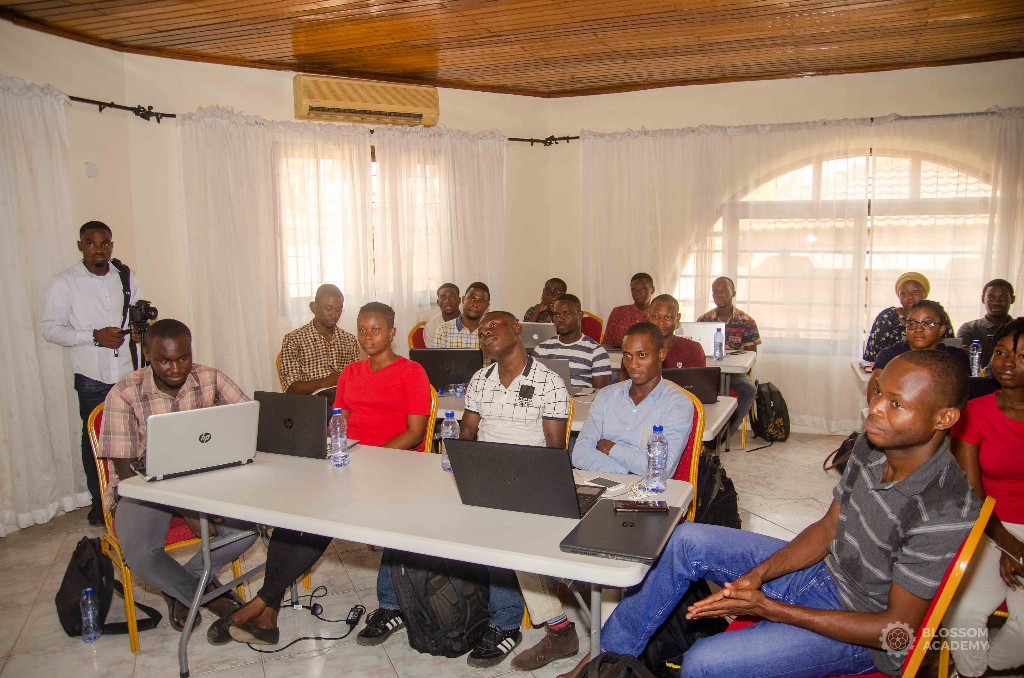In 2008, some scientists working at LinkedIn and Facebook coined the term “data science.” In 2018, the global market size of big data and business analytics was estimated at $171.39 billion and approximately $5 billion in Africa. With a large market like this, democratising data science to bridge the talent gap in Africa becomes imperative.
Organisations looking to enhance their use of data and invest in internal data science capacity face a shortage of capable African data scientists. Businesses frequently resort to hiring data science consultants from outside the continent due to the scarcity of competent local resources.
A lack of formal educational opportunities is a key contributor to the shortage of proficient data scientists on the continent, and as a result, aspiring data scientists are required to access costly online resources or are forced to pursue informal education pathways to develop their theoretical knowledge and practical experience.
This further limits career prospects as employment opportunities are more readily available to those with formal qualifications, rather than self-taught individuals.
This is why Ghanaian entrepreneur, Jeph Acheampong, in 2018, founded Blossom Academy to recruit and develop African analytics talents, with the goal of connecting them with job opportunities.
Bridging the gap
Prior to becoming founder and CEO of Blossom Academy where he drives the company’s business strategy, Acheampong worked on Wall Street where he advised and consulted for some multinationals on data strategy. He then went on to become a founding member and head of marketing of Esusu, a fintech platform that helps people save and build credit.

This, coupled with the experience he got from working in Kenya’s tech ecosystem, made Acheampong realise how data can truly help businesses achieve a competitive advantage and scale.
Due to the lack of a workforce skilled in turning data into actionable insights, African businesses spend millions of dollars each year outsourcing data projects abroad. And to tackle this head-on, Blossom Academy was created with a value proposition of targeting students and employers.
“Each month, we offer short training, such as data analytics and python programming, for beginners. For our advanced applicants, we offer training in data engineering and machine learning. During the training programmes, students build analytical tools to address the challenges of businesses in their region and receive coaching in critical soft skills.”
Creating employment for graduates
The majority of the program is delivered virtually, which enables Blossom Academy to leverage its learning management system for quick, accurate follow-up assessments. The data science academy then builds data-driven profiles for each student to personalise their learning experiences based on their learning styles, working preferences, and engagement with course content.
Acheampong says what sets Blossom Academy apart from other data science accelerators is how it consults with prospective employers on their data-related challenges and creates data-driven curricula for its students.
“Blossom Academy differentiates itself by first identifying the data challenges of employer partners prior to designing its curriculum. The academy also uses a method of learning that combines traditional classroom experiences with real-time virtual sessions.”
Despite the fact that getting access to prospective employers’ data sets Blossom Academy apart, some have expressed concerns and the Ghanaian entrepreneur has cited that as a recurrent challenge facing his two-year-old company.
“Local SME partners frequently grow concerned about their customer data getting into the possession of their competitors. We address this by censoring sensitive information from datasets before sharing with our students,” he says.
In addition, the accelerator periodically organises corporate workshops to educate organisations on the importance of analytics.
For graduates, the end goal is to have companies employ them.
“We connect our graduates to African employers, both SMEs and startups, searching for on-demand analytics talent. Majority of the time, the employers later hire them on a full-time basis,” Acheampong says.
Business model and scaling
However, to avoid churning out subpar graduates, the Ghana-based accelerator has put some effective measures in place.
By building machine learning models mid-way into its student and graduate programmes, Blossom Academy is able to predict which projects its students are likely to excel at and also predict whether they are on pace to graduate or not.
“In the future, we plan to automate this process through our learning management platform, thus exposing our graduates to targeted job opportunities and educational content on a rolling basis.”
How does the academy make money though?
Acheampong says in order to share the cost of training between students and employers, it makes use of a two-sided revenue model.
“Pertaining to revenue generation, students are paying for our training programs, and employers pay us a finder’s fee for vetted graduates. Because of this, we became profitable a year into our operations.”
So far, up until the first quarter of 2020, Blossom Academy has trained 155 students while maintaining a 92% career placement since launching. Some graduates have gone on to work at top organisations like Huawei, Vanguard Assurance, and Fidelity Bank.
Like most tech talent accelerators where most of the students are male, Blossom Academy is keen to make a change by providing gender balance among its applicants and graduates.

“We reach out directly to professors to recommend their best female graduates. We also partner and sponsor events focused on “Women In STEM” in order to attract more women applicants.”
Recently, the talent accelerator participated in the Expo Live Innovation Impact Grant in Dubai. There, it received $100,000, money Achaempong says is the company’s first outside investment. But it’s not stopping there as the company intends to do more before 2023.
“Over the next three years, we plan to scale our operations to other parts of West Africa, expand our course offerings, and also pair our graduates with on-demand opportunities outside of Africa,” Acheampong says.
Citing the words of Country General Manager for IBM Ghana, Ms Angela Kyerematen-Jimoh, “The onus is now on policy and decision-makers in education, government, and business to foster a new generation of talent with the technical expertise and disruptive ideas needed to make the most of the Big Data challenge.” Acheampong believes his country, Ghana, is well-positioned to be at the forefront of the Big Data revolution due to its location and a burgeoning culture of innovation amongst locals and returnees alike.











